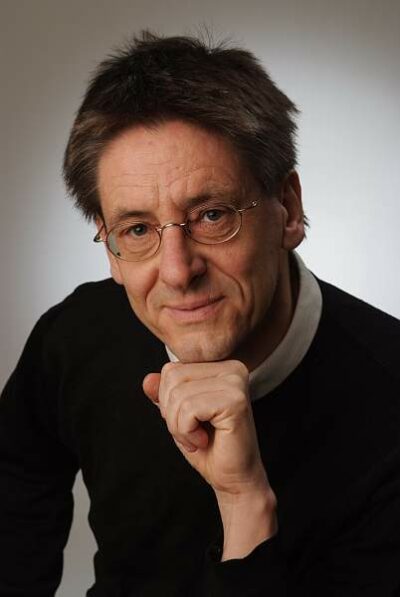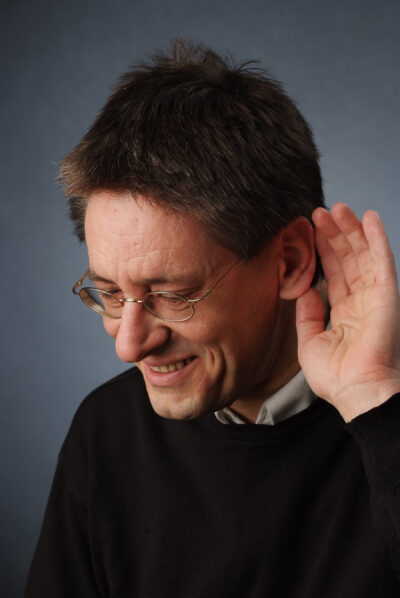Biography Wolfgang Brunner
Wolfgang Brunner enjoys himself on almost all keyboard instruments, whereby his love of historical sound sources has earned international yields (over 60 CD recordings). Another love is piano improvisation, which accompanies him almost daily from basso continuo to silent film accompaniment, as crisis management in concerts, survival training and joyfully sought-after challenge. His playful instinct is reflected in unconventional programmes, in the organisation of concert series and the „Salzburger Hofmusik“, which he founded in 1992 and which has so far successfully resisted all the economic and intellectual decline of bourgeois concert culture. Brunner satisfies his pedagogical eros at up to 3 music academies simultaneously (Universität Mozarteum Salzburg, Bruckneruniversität Linz and Musikhochschule Trossingen) in subjects such as historical performance practice, old and new pianos, improvisation, and joint projects with students. Occasionally, he cannot refrain from scientific contributions to specialist journals or encyclopaedias (MGG articles), although his increasing wisdom of age would rather teach him to devote himself to his lovely family with 3 children.


Long version:
Wolfgang Brunner studied a variety of disciplines. From 1977–81 he studied music education at the Munich University of Music and from 1982–86, he studied piano at the Mozarteum Salzburg with Hans Leygraf. From 1985–89, he studied harpsichord, pianoforte and historical performance practice with Nikolaus Harnoncourt.
Since 1985, he has taught historical keyboards, piano and improvisation at the Mozarteum Salzburg. Since April 2008, he has taught classes in pianoforte at the Trossingen University of Music and at Bruckner University Linz. His students have been awarded several international prizes on historical instruments.
In 1988, he earned first prize in the International C.P.E. Bach Competition in Hamburg in the categories of harpsichord and pianoforte and received the pianoforte prize of the German Grammophone Society. In 1989, he was awarded first winner in the Brügge International
Mozart Competition in the category of pianoforte. In the meantime, he has become a sought‑after juror himself.
Since 1989, he has appeared at virtually all of the important European festivals for early music and today is regarded as one of the leading specialists of his generation. His partners include renowned interpreters of the early music scene such as Michael Schopper or the
Freiburg Barockorchester.
In 1991, he founded the ensemble Salzburger Hofmusik, which mainly but not exclusively performs the music of the 17th through the 19th centuries on original instruments, although the music of the Salzburger Court is a main focus of their repertoire. Projects including new
music, crossover or unusual formats offer him a welcome diversion, as well as curating concert series.
Among Wolfgang Brunner’s over 70 CD recordings and radio broadcasts include the first recordings of piano works by Anton Bruckner, E.T.A. Hoffmann, Ludovico Giustini, songs by Carl Orff, Heinrich Ignaz Franz Biber’s opera Arminio, as well as many of Johann Michael Haydn’s works for music theatre, which have often been awarded prizes.
Wolfgang Brunner has also been involved with the history of dance for many years. In this context, he studied musicology, drama and ethnology in Munich and Salzburg. He was a lecturer in historical dance from 1983–88 and has published essays and encyclopaedia
entries (e. g. the MGG articles »Arbeau« and »Branle«). His most recent studies mainly address topics regarding historically informed performance practice and improvisation.
